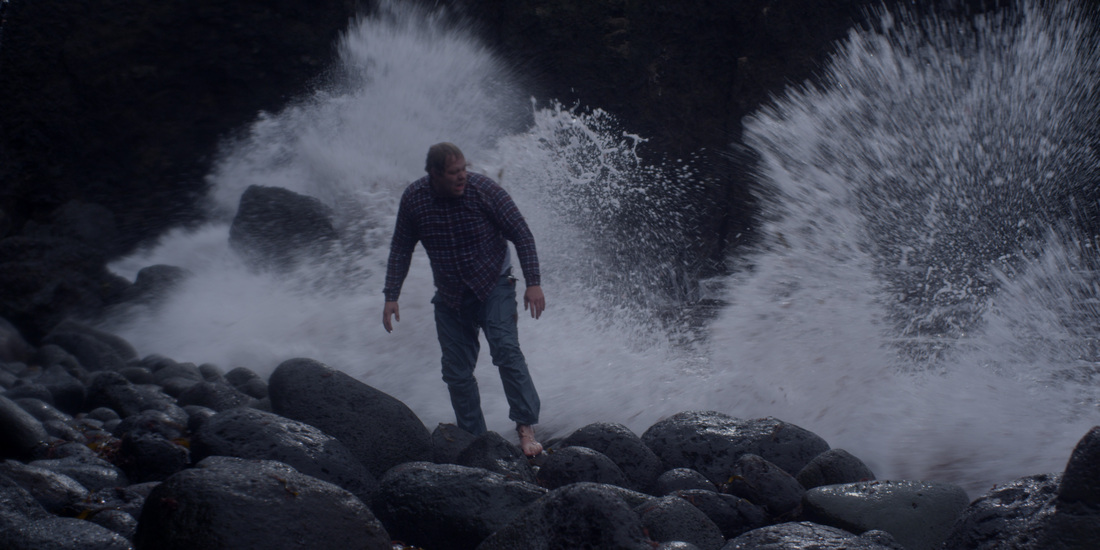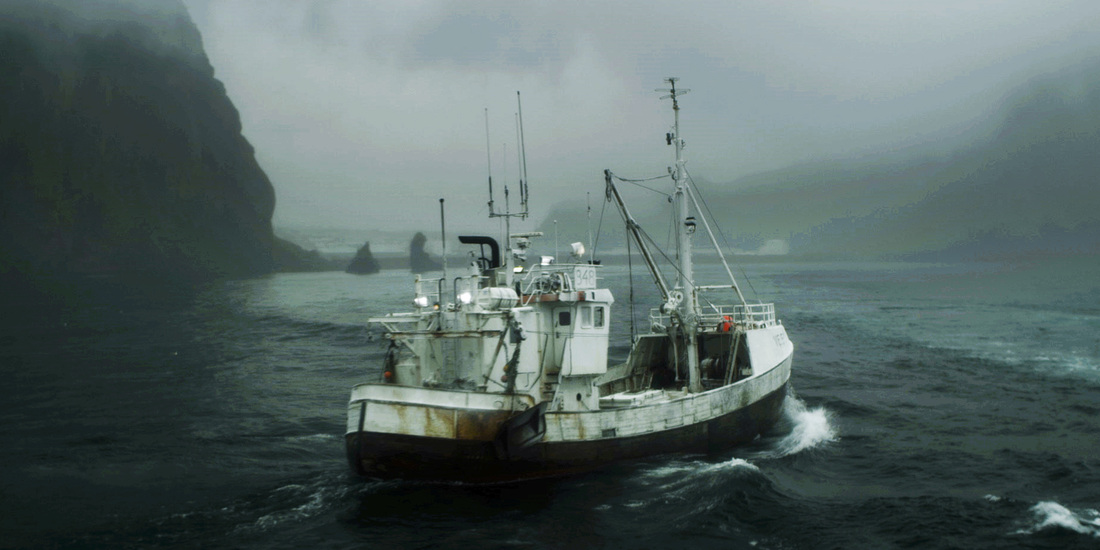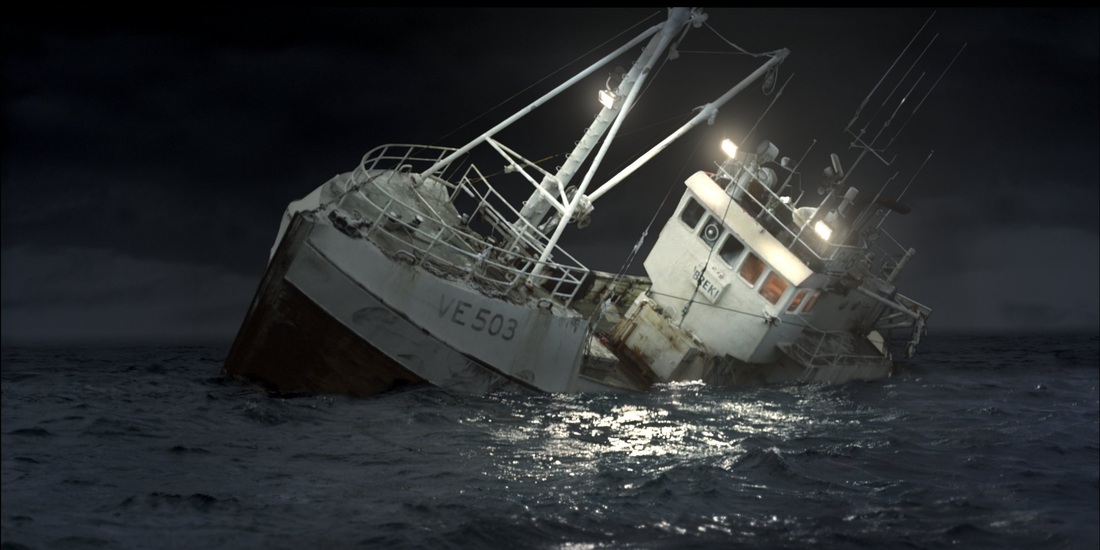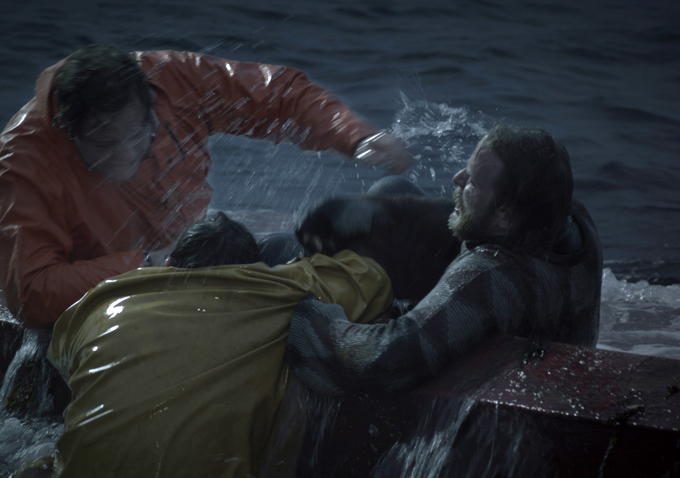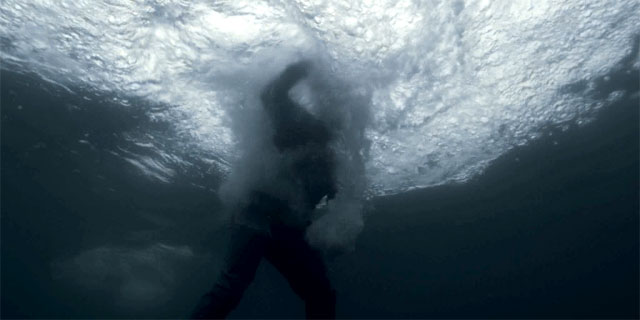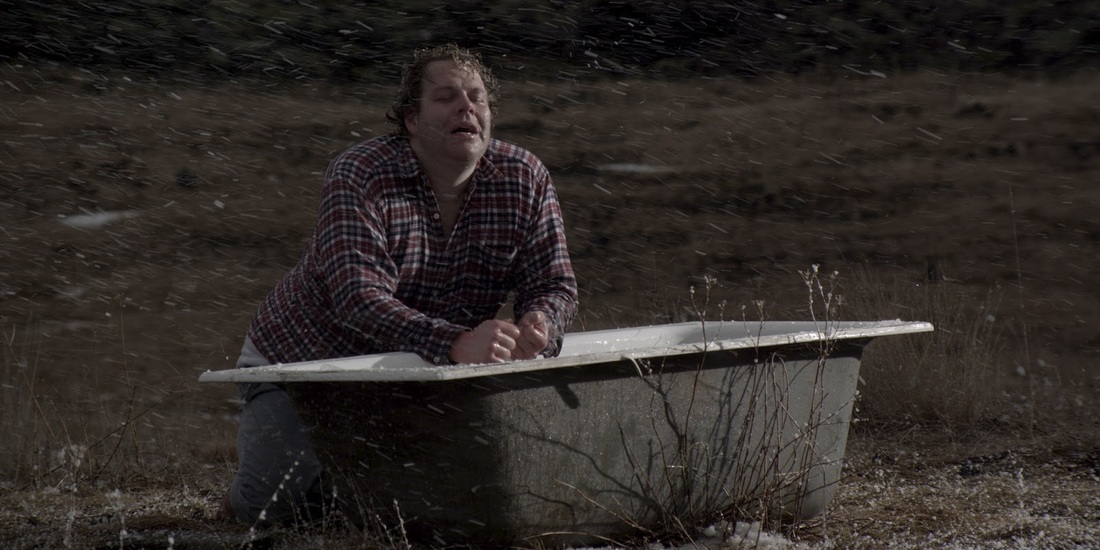|
|
The Deep is a biographical film that was the Icelandic entry for Best Foreign Language Oscar in 2012 and is directed by Baltasar Kormákur, who peculiarly went on to direct 2 Guns this year. The film is a curious and sobering piece that observes the legend of an Icelandic fisherman who refused to die in remarkable circumstances and is based on the real story of Guðlaugur Friðþórsson who reportedly went through the same ordeal in 1984. Gulli (Ólafur Darri Ólafsson) is shipwrecked and, against all odds and medical science, manages to survive his ordeal shown convincingly enough to make it harrowing and difficult to watch. Gulli swims roughly 5km over the course of six hours in 6°C water, a temperature that would ordinarily kill a human being in around 20 minutes.
Gulli has friends on his fishing vessel, some of whom he has been friends with for years. These individuals are presented with their own quirks and idiosyncrasies before they are killed by the start of the second act, immediately setting a desperate tone. What follows is Gulli's experience as he goes through the complex series of human emotions that evoke an unbreakable will to survive and the confusing events that followed as doctors tried many tests in order to evaluate the circumstances that led to Gulli’s inconceivable survival. Gulli finds these tests both humiliating and impersonal, recalling the Tom Hanks vehicle Cast Away (2000) that similarly deals with the loss of identity associated with miraculous survival. The Deep invites several different emotional states that throw the genre of the film into question. It begins as a drama, setting up characters and goals, but quickly progresses into the territory of horror as the main character's wellbeing is endangered. The film then teeters on the edge of torture porn, masochistically lingering on the protagonist’s unending hardship before finally, anticlimactically, lapsing once more into a drama as life seems to resume as if nothing had happened. Whilst the sudden unsatisfying twist distances the film considerably from conventional storytelling, which relies on a certain high of accomplishment somewhere in the second act, The Deep carries a considerable poignancy as we see Gulli coming to terms with his horrible adventure only to continue with his small, arguably unsatisfying life. Swimming for his life, Gulli describes his ambitions and desires to the circling gulls. A series of somewhat tongue-in-cheek daydream segments commences where we see an uncharacteristically photogenic Gulli waking up early, deliberately not drinking out of the carton as he usually does, pausing to give a playful wink to his mother, riding his motorbike around the island roads and visiting a fictionalised love interest. The imaginary montage presents all the things Gulli feels he should have in his life but does not. It is these ambitions that play a role in his undying will to survive and yet after he is saved, at least for the time being, he disregards these haughty life goals to simply live as he likes, continuing to smoke and returning to life on the deck of a trawler boat. Apart from now being more comfortable and appreciative of what he does have, Gulli is ultimately unchanged. This is an interesting choice as usually a protagonist and their world is changed for the better by their journey. Yet in Gulli's world everything remains the same and, after an identity crisis and with a remarkably refreshing outlook, Gulli realises there is nothing really wrong with that. Despite some odd pacing that might test the patience of some viewers The Deep is a beautiful film about a journey to the edges of human resilience. The Deep depicts this in both physical terms – as such a Sisyphean task is presented to our protagonist – but also emotionally as Gulli's friends and ship, the symbols of his old life, slowly sink beneath the freezing waves. |

